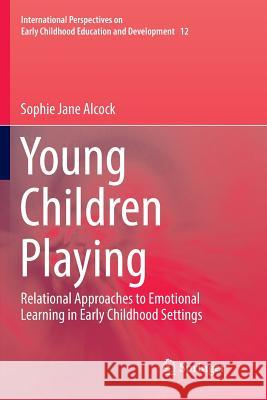Young Children Playing: Relational Approaches to Emotional Learning in Early Childhood Settings » książka
topmenu
Young Children Playing: Relational Approaches to Emotional Learning in Early Childhood Settings
ISBN-13: 9789811093456 / Angielski / Miękka / 2018 / 194 str.
Kategorie:
Kategorie BISAC:
Wydawca:
Springer
Seria wydawnicza:
Język:
Angielski
ISBN-13:
9789811093456
Rok wydania:
2018
Wydanie:
Softcover Repri
Ilość stron:
194
Waga:
0.30 kg
Wymiary:
23.39 x 15.6 x 1.12
Oprawa:
Miękka
Wolumenów:
01
Dodatkowe informacje:
Wydanie ilustrowane











